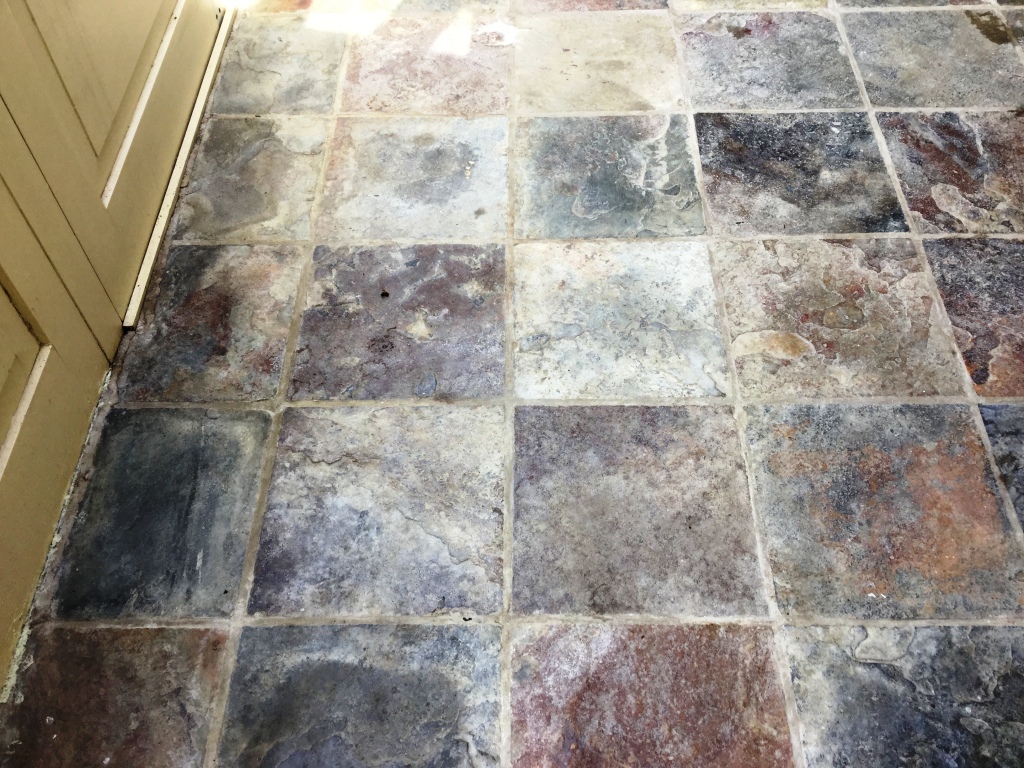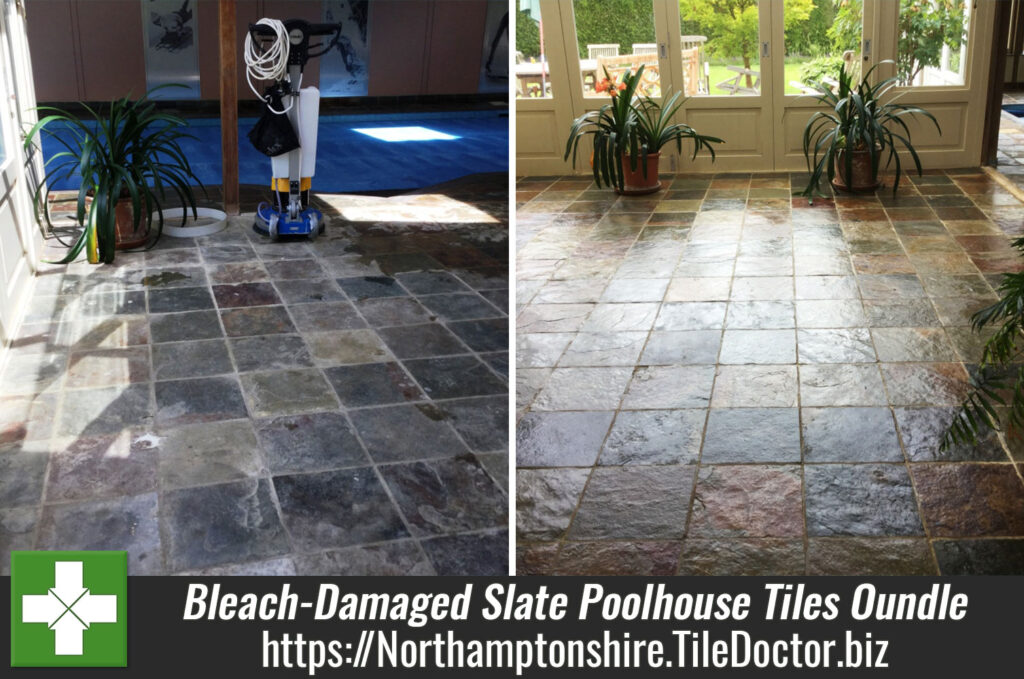This very nice house in a village near Oundle in Northamptonshire features something we don’t see too often in residential property – an indoor swimming pool. The pool is surrounded by some very complementary and rustic looking Slate tiles which act as the flooring in the poolhouse.

However, over the years, the Slate tiles had been badly damaged by the chlorine bleach which is used to sterilise the pool water. The cumulative effect of people splashing water onto the tiles or walking around wet on the floor had caused the sealant to break down and the bleach had left a white blotchiness on the stone. I was asked to rectify the situation by deep cleaning the tiles, resurfacing some of the damaged stone, and applying a fresh sealant.

Cleaning Bleach-Damaged Slate Tiles
My first course of action in restoring these tiles was to clean the entire floor using Tile Doctor Pro-Clean, which is a strong alkaline-based cleaner for most types of natural stone. This product was scrubbed into the tiles using a stiff brush fitted to a rotary machine. After cleaning, I rinsed the floor with fresh water and used a wet vacuum to soak up the resulting slurry. Although the pool was protected with a cover I had to take care not to allow any of my cleaning water to contaminate the pool.

The process was effective in removing most of the white calcium deposits caused by the bleach, but not all of them. I tackled the more embedded stains with
Tile Doctor Acid Gel, which is a blend of phosphoric and hydrochloric acids which treats stubborn smears such as these. The gel was brushed onto the tiles and left to dwell for 15 minutes, and then agitated using a black stripping pad fitted to a rotary machine.
After rinsing the floor again, I found that there were yet still stubborn stains remaining that didn’t respond to chemical cleaning. I decided that removing these would necessitate a more aggressive approach, and so used a set of diamond-encrusted burnishing pads to literally remove the damaged layer of stone and resurface the face of some of the badly damaged tiles.
Sealing Slate Tiles
The tiles were left to dry overnight after being cleaned and repaired. The next day, I returned to the property to applying the fresh sealant. For this I used Tile Doctor Colour Grow, a sealant which impregnates the stone to provide maximum protection and enhances its natural colours.

The customer was very impressed with the result and was very much keen to make sure the tiles remained in such good condition, so I made sure to provide the groundsman with instructions on routine maintenance.

I informed him that each time the pool is used the entire area needs to be hosed and brushed down as no sealer can withstand continuous exposure to chlorine bleach. I also left a complementary tin of Colour Grow sealant with him for periodic top-ups, as well as information on the yearly maintenance plan we offer at Tile Doctor.
Professional Removal of Calcium Deposits from Slate Pool House Tiles in Northamptonshire
Like this:
Like Loading...
Related









Tile Doctor have the products, equipment and experience to tackle all sorts of problems including stone restoration, removing Limescale, repairing cracked tiles and grout and even stain removal with products such as Tile Doctor Reduxa which can lift Red Wine stains out of natural stone.